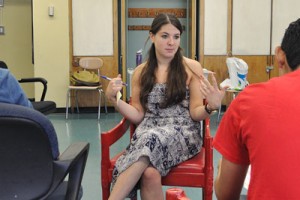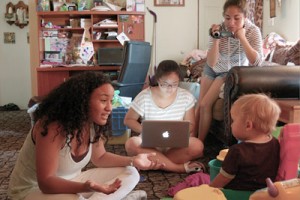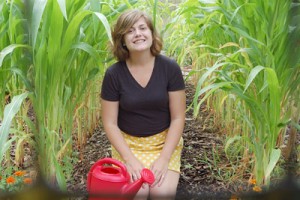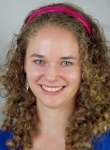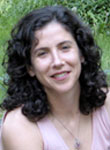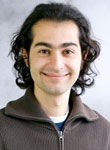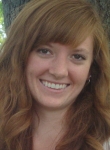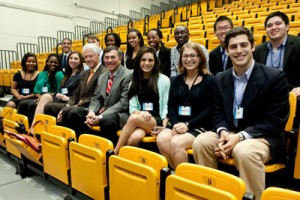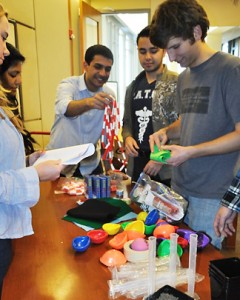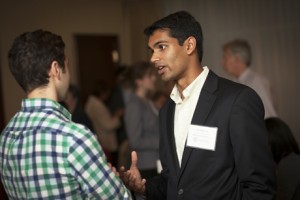
Anil Singhal '13 represented one of three student groups that won the humanitarian award. He is president of Youth Outreach Undergraduates Reshaping Success, a program that works with an underserved community in Freeville, N.Y. - Jason Koski/University Photography
Three times a week 50 underserved kids ages 7 to 17 from Freeville, N.Y., gather for homework help and fun activities with Cornell students in the group Youth Outreach Undergraduates Reshaping Success (YOURS).
But once the kids hit about age 13, they often become less interested in the program and a few even begin having behavior problems. “You can see that they feel like they are too cool for the program and are older and more mature and don’t want to be treated like kids anymore,” said YOURS President Anil Singhal ’13.
So YOURS came up with a plan to keep the teens engaged: a training program to teach them how to mentor the younger children. The teens will learn skills related to leadership, teamwork and modeling positive behavior; they’ll integrate those skills as they plan and lead activities under the supervision of Cornell students.
“Hopefully the skills they develop will help them find employment or get into a college or a vocational program – whatever it may be that they wish to do,” said Singhal.
For this plan YOURS was one of three Cornell student groups that each recently received the Robinson-Appel Humanitarian Award, which comes with a grant of $1,500 to further their community service projects. The award is administered by Cornell’s Public Service Center.
Eighteen student groups applied for the award. Six semifinalists made the case for their projects April 19 and finished the day with dinner at the Statler Hotel, where Vice President for Student and Academic Services Susan Murphy announced the recipients.
Sharjeel Chaudhry ’13 and Kathy Tin ’14 won the award fortheir PATCH Science Kits. Cornell students in the Pre-professional Association Toward Careers in Health (PATCH) will use their pre-med science backgrounds to create science kits for students in North Brooklyn, N.Y. Each kit will include the instructions, equipment and lessons needed to carry out several full-length experiments. “This $1,500 is an investment,” said Chaudhry. “If only two students from our target population end up pursuing science, our investment will be well worth it.”
Jillian Strayhorn ’14 accepted the award for Project SOLVE (Skills Oriented Life View Education), in which undergraduates tutor students ages 7-17 (most are 8-12) in academic skills and psychological skills, including conflict resolution and anger control, anxiety reduction and kindness and empathy. Each tutor is paired with one student, with whom they typically work for 30 minutes, six days per week, for a year or more. Tutoring sessions are held by telephone to minimize logistical difficulties.
Project SOLVE will use the award to fund the prizes that some of the kids are working toward. “These prizes help us make our students’ goals more immediate and more easily anticipated, making the idea that work yields progress even more salient,” Strayhorn said.
The panel that chose the winners consisted of alumni affiliated with the Public Service Center, a student representative and Leonardo Vargas-Mendez, executive director of the Public Service Center.
The awards were established by Gerald Robinson ’54, Margot Robinson ’55, Robert Appel ’53 and Helen Appel ’55 to recognize and honor students who have had significant involvement in community service by providing support for their projects, which address a community’s social needs or problems.





